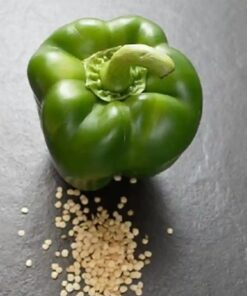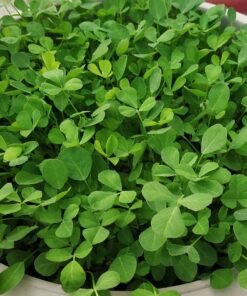Carrot Kuroda Seeds Gajar pack of 100 seeds Op
₹40.00
In stock
Carrots Kuroda Seeds Description for Carrot Red
Carrots Kuroda Seeds You can grow carrots all year round and they are so simple! Just sow carrot seeds regularly for a year-round crop.
Carrot seeds are an easy and rewarding crop to grow, great for encouraging children to eat their vegetables! With so many varieties of this popular vegetable available, carrots can be grown in beds, containers, and even window boxes making them suitable for gardens of any size.
Carrots are a popular root vegetable that is easy to grow in sandy soil. They are resistant to most pests and diseases and are a good late-season crop that can tolerate frost.
Not all carrots are orange; varieties vary in color from Purple to black to white. Spinach can be a good companion
| Number of Seeds | 70-100 |
|---|---|
| Sowing month | Aug to Jan |
| Sowing temperature | 20-35C |
| Blooming month | Dec to April |
| Sun | Full |
Planting and care
Orange carrots are the traditional standard, but you can try growing white, yellow, crimson, or even purple-skinned carrots, too.
More important than color, though, is choosing the right root size and shape to suit your soil. Carrot size and shape vary by type, and there are five major categories. Ball-type, Chantenay, and Danvers carrots have blocky shapes that can handle heavy or shallow soil, while slender Nantes and Imperator carrots need deep, loose soil.
| Sunlight | Soil | Water | Temperature | Fertilizer |
|---|---|---|---|---|
| full sun, Will tolerate very light shade. | Requires well-drained soil. Good quality roots require plentiful moisture and soil that is deep, loose, free of stones, and high in organic matter. Roots can become twisted and forked in heavy, stony soil. Prefers a pH of 6.0 to 6.8 but can tolerate 5.5 to 7.5. Requires only moderate nitrogen. Too much can cause root branching. | Average | For Germination 45-85 F For growth 60-65 F | Fertilize 5-6 weeks after sowing.Apply any fertilizer |
Caring for Carrot Red
- Gently mulch to retain moisture, speed germination, and block the sun from the roots.
- Soil should be well drained and loose to prevent forking and stunting of the root growth.
- Once plants are an inch tall, and thin so they stand 3 inches apart. Snip them with scissors instead of pulling them out to prevent damage to the roots of the remaining plants.
- Water at least one inch per week.
- Weed diligently.
- Fertilize 5-6 weeks after sowing.
- Carrots taste much better after a couple of frosts. Following the first hard frost in the fall, cover carrot rows with an 18-inch layer of shredded leaves to preserve them for harvesting later.
| Color | Red |
|---|---|
| Germination Level | Easy |
| Growth Pattern | Under soil |
| Hybrid or Open Pollinated | Hybrid |
| Ideal location | Full sun |
| Origin Country | Japan |
Be the first to review “Carrot Kuroda Seeds Gajar pack of 100 seeds Op” Cancel reply
You must be logged in to post a review.












Reviews
There are no reviews yet.